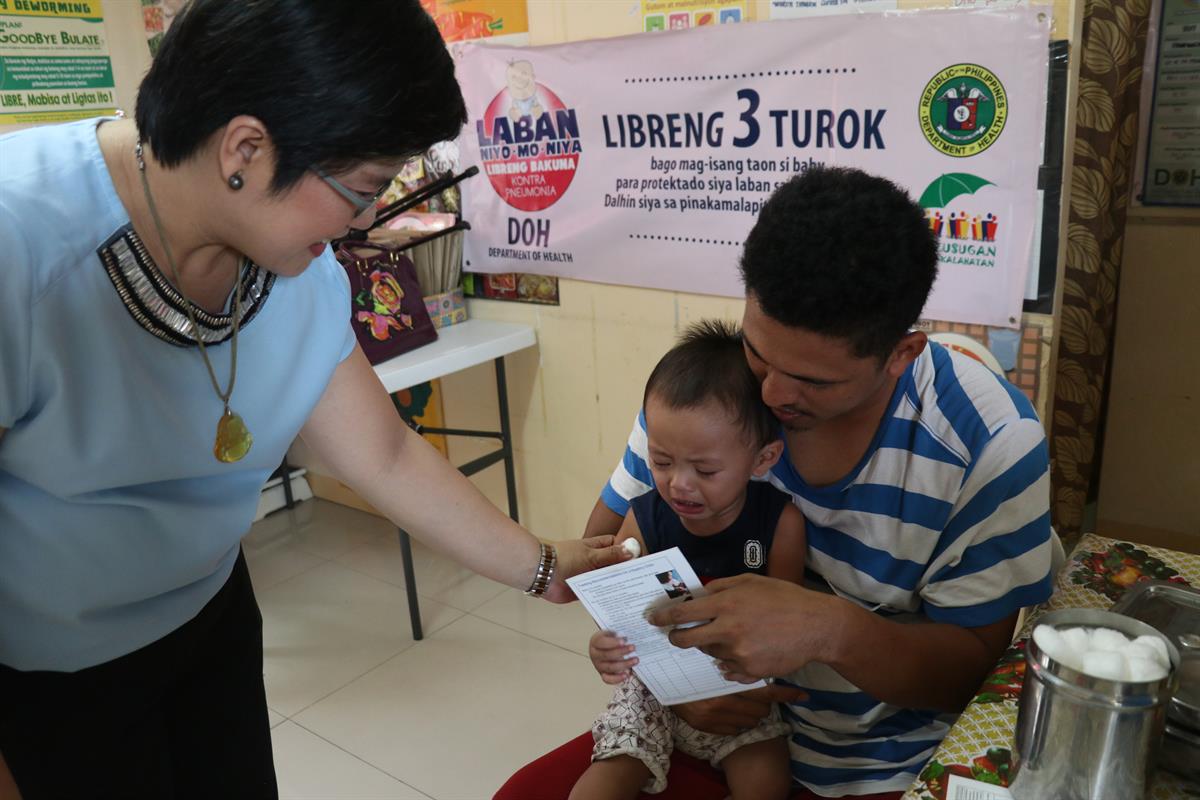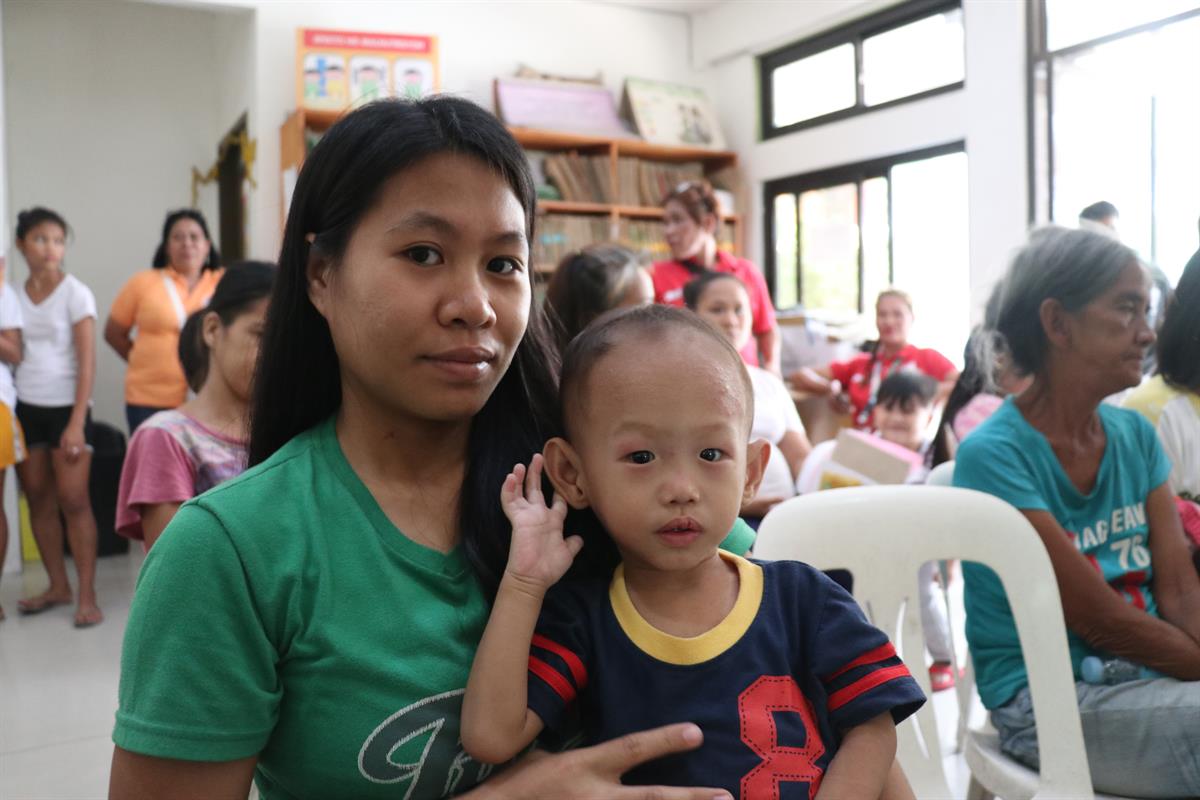While over 80 kilometres span the distance between the Baseco Compound in Manila and the Bulaon Resettlement in the City of San Fernando, Pampanga, both communities have similarities when it comes to vaccines. Both areas have seen the same challenges and have solved some bottlenecks thanks to vaccine heroes in their community.
Baseco in Metro Manila and Bulaon in Central Luzon (Region 3) were part of the communities where the controversial Dengvaxia was introduced. This exacerbated the already declining immunization coverage in the Philippines. Both Baseco and Bulaon were part of the communities that had measles outbreak early in 2019.
The dengue vaccine issue worsened the confidence of Filipinos to vaccines in general. A study from the London School of Hygiene and Tropical Medicine showed that Filipinos who believe “that vaccines are important, are safe and are effective” dropped from close to 100% in 2015 to 60-80% in 2018.
“At the time when the news about Dengvaxia blew up in 2017, my mother was the one taking care of my child,” said Grace Mendoza, a 28-year old mother to Austin, aged 1 year and 9 months. “She wasn’t aware. She was afraid to have him vaccinated.”
Health workers facing challenges on the frontlines
Health workers, who were the on the front lines when the dengue controversy and measles outbreak occurred, particularly felt the challenge in the community.
“We faced lots of challenges then, especially with the dengue vaccine. The mothers declined, especially when we were knocking on their doors for vaccination. They would close the doors on us,” explained Christina J. Bolido, a barangay health worker at the Corazon Aquino Lying-In and Health Center in Baseco.
In San Fernando, they had an added task of introducing the Japanese encephalitis vaccine, WHO-prequalified vaccine that was introduced this year in Ilocos Region, Cagayan Valley, Central Luzon and Cordillera Administrative Region. Japanese encephalitis is endemic in the Philippines and there have been many cases reported from this mosquito-borne disease in Central Luzon. The region also saw 1000% increase in measles cases in 2019 compared to 2018.
A Japanese encephalitis vaccine held by a health worker in San Fernando, Pampanga. Photo: WHO/F. Tanggol
“We have many infectious diseases as Japanese encephalitis, dengue diseases, and measles. Just recently, we were part of the Region 3 that declared a measles outbreak,” said Dr Renely Tungol, a rural health physician and coordinator of the Expanded Programme on Immunization in the City of San Fernando
“Since we’re a city, our challenge in immunization is that people perceive vaccines from the government as fake or low quality. So our challenge really is to promote specific vaccines so that Fernandinos will support them,” added Dr Tungol.
Health workers as vaccine heroes in the community
To address these challenges, every day heroes – from health workers to parents – are helping to ensure that the community is protected with vaccines. In Baseco, barangay health worker Christina makes sure she is able to visit all the 900 households in her jurisdiction. She goes around and talks to parents one by one to explain the importance of vaccines.
“I went house-to-house. I convinced them. I tell them that we need to work together for the sake of their children. That’s our job as vaccine champions – we find those who have not had their vaccines so that they are safe from measles and other diseases,” said Christina. “We were able to encourage them, so gradually their trust in vaccines and with the health center has returned.”
The efforts of barangay health workers like Christina have resulted in zero new measles cases in Baseco.
Barangay health worker Christina Bolido talks with a resident in Baseco, Manila. Photo: WHO/F. Tanggol
In Bulaon, San Fernando, health workers from the region to the barangay are introducing a different approach to promoting vaccines by working with multisector influencers.
“We had an innovative project where we tapped famous Fernandinos in the religious sector, business sector, and medical sector so that they could help convince the people of San Fernando that vaccines are the most important shield against diseases,” explained Dr Tungol.
They are also using electric bicycles to strengthen their community mobilization.
“The electric bike was donated to the city and afterwards, our barangay health workers were able to use this to find defaulters,” Dr Tungol added.
These initiatives resulted in gains to the San Fernando community. In just a month, they were able to cover over 90% of their defaulters and the people are continuing to visit the health centers for regular immunization.
Dr Renely Tungol, a rural health physician and coordinator of the Expanded Programme on Immunization in San Fernando, administers the measles vaccine to 1-year old Kervin Zeus. Photo: WHO/F. Tanggol
Parents as vaccine heroes in the family
In Bulaon, Kervin Celso, a father of 3 children, is one of the many parents visiting the health center to complete their children’s vaccination. While it’s usually mothers who go with their children, Kervin was the one who accompanied his 1-year old son Kervin Zeus.
“My wife is working and I have the free time. They said there’s vaccination going on so I came here to the health center so my baby will have complete immunization,” shared Kervin. “Of course, I want this so that we can avoid him getting sick.”
Grace, whose child Austin had incomplete vaccines before, is now making sure that he is fully immunized. While she’s disappointed with her mother for supporting vaccines, Grace has taken full charge of taking care of Austin.
“I want to complete his immunization. If he completes his immunization, then he’s protected from diseases,” Grace said.
28-year old Grace Mendoza with her son Austin at the health center in Baseco, Manila. Photo: WHO/F. Tanggol
While she admires how the health workers have handled the challenges in the community, she hopes that there are more health workers to help spread the word more about vaccines especially in her community in Baseco.
“I hope that mothers who are not so aware about immunization become more aware,” she added. “Health workers from different barangays should have the perseverance to inform the parents who are not so aware about the
“I hope that mothers who are not so aware about immunization become more aware,” she added. “Health workers from different barangays should have the perseverance to inform the parents who are not so aware about the vaccines.”
